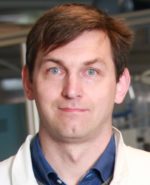Carbon dioxide to fuel cars and make rural farm fertilisers thanks to £9m ERC funding
A University of Warwick researcher, Prof. Evgeny Rebrov, together with members of an international team, has won a £9 million ERC Synergy grant SCOPE to study the effect of fast temperature modulations in chemical reactors to improve the efficiency of current technologies utilising cold plasma.
This research is likely to transform the way how bulk chemicals will be produced in the future. The ultimate goal is a cheap, standalone solar-powered system to turn CO2 into fuels for vehicles, cooking or power generation.
Prof Rebrov is Head of Laboratory for Energy Intensified Reactor Engineering in the School of Engineering and CTO at Stoli Catalysts Ltd, a spin out company of the University of Warwick.
In the framework of the SCOPE project (Surface-COnfined fast-modulated Plasma for process and Energy intensification in small molecules conversion), he will investigate how cold plasma and its interaction with catalytic coatings will intensify the production of fertilisers and so called solar fuels.
These solar fuels received their name because they are made from nothing more than atmospheric air, water and electricity produced by sunlight. Their synthesis has two processes that need to run in symbiosis.
The first is a plasma system that uses electricity from solar panels to split CO2 and H2O into oxygen, hydrogen and carbon monoxide. Then these species can be converted over solid catalysts into alcohols like methanol and ethanol that are the precursors to liquid fuels. Fertilisers are made by another chemical route to split atmospheric N2 and H2O to make ammonia and nitrates.
The development of advanced chemical energy conversion and chemical storage technologies is an important area of research at the University of Warwick. The SCOPE project will provide a pathway to alternative chemical resources, while helping to mitigate emissions and climate change associated with use of fossil fuels.
Professor Rebrov will work with principal investigators from Italy, Belgium, and Australia who will bring together different skills in this ambitious research project. Establishment of a world-class multidisciplinary research team in the area of plasma catalysis will provide high quality training for the next generation of young scientists and engineers in energy conversion and storage to maintain competitive edge in this interdisciplinary area.
Evgeny Rebrov will collaborate more closely with a process intensification and disruptive technologies sustainability expert, Professor Volker Hessel, from the University of Adelaide, Australia. To stimulate this collaboration, Volker Hessel took a part-time Professor position at the University of Warwick. Prof Rebrov will take a reciprocal role at the University of Adelaide.
The SCOPE project will start on 1st April 2019 and has a duration of six years.
ENDS
19 MARCH 2019
NOTES TO EDITORS
High-res images available at: https://warwick.ac.uk/services/communications/medialibrary/images/march2019/prof_evgeny_rebrov_.jpg
For further information please contact:
Alice Scott
Media Relations Manager –Science
University of Warwick
Tel: +44 (0) 2476 574 255 or +44 (0) 7920 531 221
E-mail: alice.j.scott@warwick.ac.uk
For further information please contact:
Alice Scott
Media Relations Manager –Science
University of Warwick
Tel: +44 (0) 2476 574 255 or +44 (0) 7920 531 221
E-mail: alice.j.scott@warwick.ac.uk
